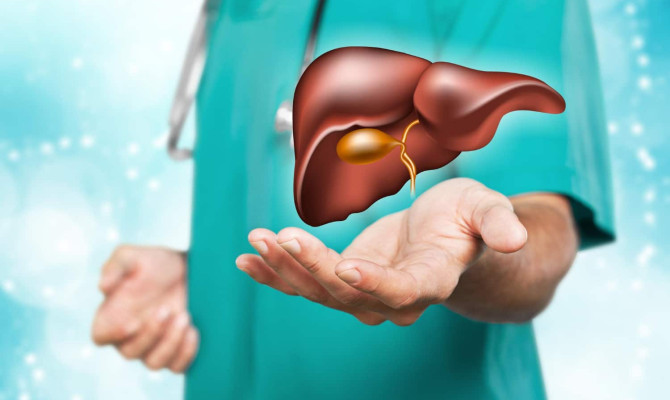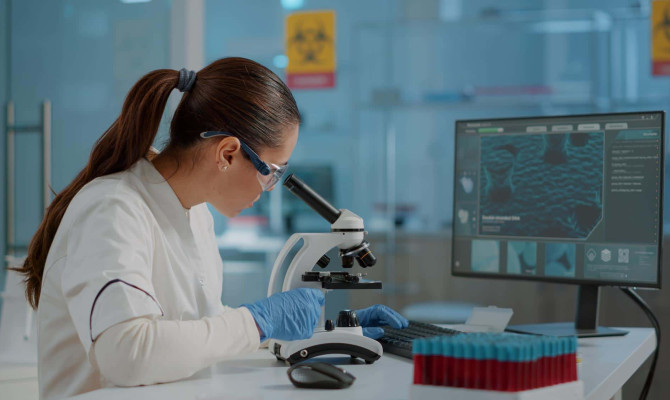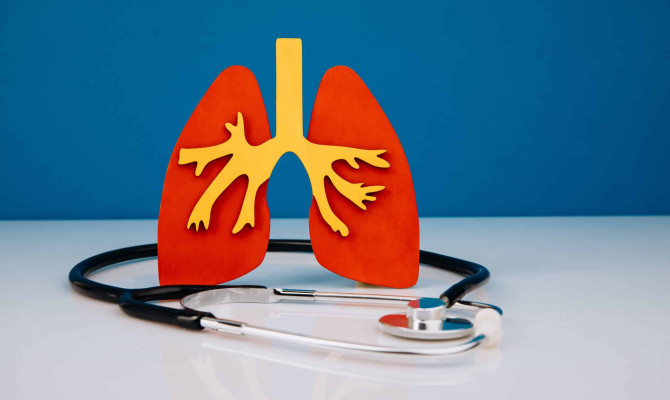Hypothyroidism : What do I need to know?

- Hypothyroidism
- 16 Aug 2023
Overview
What is Hypothyroidism?
Hypothyroidism is defined as a disorder characterized by a lack of thyroid hormones. The thyroid hormone plays a crucial role in the normal growth and development of various human tissues and regulates the metabolism of almost all cells and organs in the human body at every stage of life. Hypothyroidism is a commonly occurring medical condition among people. In most cases, hypothyroidism develops gradually and symptoms may not appear until later in the course of the disease. Diagnosing and treating hypothyroidism is usually straightforward, but if left untreated, it can be life-threatening, particularly in severe instances. This condition is more common in women, older individuals (over 65 years of age), and people of white ethnicity.1Overview| Researched based study from Lancet.com2Overview| Researched based study from Nature.com

Types
Types of hypothyroidism
Primary and secondary hypothyroidism are the two categories into which hypothyroidism can be categorized.3Types| Researched based study from healthywa.wa.gov.au
- Primary hypothyroidism refers to a situation where the thyroid gland itself is affected by a disease or disorder that causes it to produce insufficient thyroid hormones.
- Secondary hypothyroidism, on the other hand, develops when the pituitary gland is unable to prompt the thyroid gland to generate enough hormones.
- These two types of hypothyroidism have different underlying causes and mechanisms of hormone deficiency.
Causes
What are the causes of hypothyroidism?
Hypothyroidism can arise from various causes, including:
Hashimoto’s disease
- It is an autoimmune condition in which the thyroid gland is mistakenly targeted by the body’s immune system, causing inflammatory conditions, destruction, and eventually low thyroid hormone levels.
Thyroiditis
- The normal functioning of the thyroid gland can also be disrupted by inflammation caused by bacterial or viral infections, leading to hypothyroidism.
Congenital hypothyroidism
- This is a form of hypothyroidism that is present from birth and may be caused by genetic or developmental abnormalities affecting the thyroid gland.
Undergoing surgery to partially or completely remove the thyroid gland
- If the remaining thyroid tissue after surgery for thyroid cancer or other thyroid conditions is inadequate to produce enough thyroid hormones, it can lead to hypothyroidism.
Radiation treatment of the thyroid
- Radioactive iodine therapy or radiation therapy to the head or neck region for other conditions, such as cancer, can damage the thyroid gland and lead to hypothyroidism.
Some medicines
- Certain medications, such as lithium, amiodarone, and interferon, can interfere with thyroid function and result in hypothyroidism as a side effect.
Disorders of the pituitary gland or hypothalamus
- Pituitary gland or hypothalamus disorders, which are responsible for regulating thyroid function through the production of thyroid-stimulating hormone (TSH) and thyrotropin-releasing hormone (TRH), can result in hypothyroidism.
In some cases, hypothyroidism may also be attributed to dietary factors, such as excessive or inadequate iodine intake. Understanding the underlying causes of hypothyroidism is crucial in determining appropriate management and treatment strategies for affected individuals.4Causes| Researched based study from Niddk.nih.gov
Symptoms
What are the symptoms of hypothyroidism?
Symptoms associated with physical appearance
- An increase in body weight
- Facial swelling and a lightened complexion
- Hair and nail fragility
- Hair loss
- Dry skin.
Symptoms associated with a person’s overall well-being
- Fatigue
- Cold intolerance
- Pain or discomfort in the muscles
- Difficulty in passing stool or having infrequent bowel movements
- Pain or discomfort in the head, often accompanied by sensations of pressure or tension
- A slow heart rate
- Menstrual changes in women.
Symptoms associated with cognitive function
- Forgetfulness
- Reduced concentration
- Depression.5Symptoms| Researched based study from Healthdirect.gov.au
Diagnosis
Diagnosis of hypothyroidism
Obtaining medical history and conducting physical examination
- Typically, a comprehensive medical history is obtained, and a physical exam is conducted.
- Doctors may ask questions about your symptoms, such as fatigue, weight gain, and constipation, as well as any previous medical conditions or surgeries, medications, and family history of thyroid disease.
- Physical examination includes a neck examination, checking reflexes, heart rate, body temperature, and examining the skin, hair, and nails for any abnormalities that may indicate an underactive thyroid gland.
Analysis of blood
Thyroid stimulating hormone test
- The pituitary gland produces TSH, which stands for thyroid-stimulating hormone.
- Thyroxine (T4) and triiodothyronine (TSH), two important hormones, are produced and secreted by the thyroid gland as a result of TSH.
- Hypothyroidism is often indicated by a high TSH level.
T4 tests
- If the level of T4 in the blood is low, it may indicate hypothyroidism.
T3 tests
- To confirm the diagnosis of hyperthyroidism, a T3 test may also be conducted in addition to measuring T4 levels.
- In hypothyroidism, the level of T3 (triiodothyronine) in the blood is typically lower than normal.
Thyroid antibody tests
- Thyroid antibodies are produced when the immune system erroneously attacks the thyroid gland.
- Assessing the concentrations of these antibodies can aid in the diagnosis of autoimmune thyroid conditions, such as Hashimoto’s disease and Graves’ disease, which are the primary reasons for hypothyroidism occurrence.6Diagnosis| Researched based study from Niddk.nih.gov
Vulnerability
Who are at risk?
- Women are more likely than men to have hypothyroidism.
- Individuals who have previously experienced a thyroid condition, such as a goiter
- Patients who have underlying health conditions like type 1 or type 2 diabetes, Celiac disease, or Sjögren’s syndrome.
- Females who have had a pregnancy in the previous six months.
- Radiotherapy-treated individuals
- Turner syndrome-affected women
- People who have a familial background of thyroid disease.
- Having pernicious anemia.4Vulnerability| Researched based study from Niddk.nih.gov
Complications
Complications associated with hypothyroidism
- Neglected hypothyroidism can cause elevated cholesterol levels.
- Although it is uncommon, it can also lead to a serious disease known as myxedema coma.
- Myxedema coma is a severe and potentially lethal medical condition characterized by the slowing down of the body’s physiological functions to an alarming extent.
- Pregnancy-associated hypothyroidism may result in several complications that can have adverse effects on both the mother and the fetus.
- The complications during pregnancy include preterm delivery, hypertension, pregnancy loss, and slow development and growth of the newborn.7Complications| Researched based study from Medlineplus.gov
Management
Management of hypothyroidism
Medical Management
- Hypothyroidism is typically managed by administering a synthetic hormone replacement medication called levothyroxine on a daily basis.
- Levothyroxine is a medication that substitutes for the hormone thyroxine, which is not sufficiently produced by the thyroid gland.
- For optimal absorption and effectiveness, it is recommended to take levothyroxine 30-45 minutes before eating breakfast or before going to bed, with a minimum gap of three hours after the last meal.
- The absorption of levothyroxine can be affected by elemental supplements like calcium and magnesium, as well as common medications such as proton pump inhibitors.
- It is crucial to maintain a consistent brand or formulation of levothyroxine for effective management of hypothyroidism.
- In cases where a patient cannot take oral thyroid replacement medication or is suspected of having myxedema coma, switching to the intravenous (IV) form of levothyroxine in a hospital setting may be necessary.
- The IV dose of levothyroxine is typically reduced to 50% of the oral dose.
- Individuals with cardiac conditions should be closely observed for the appearance of symptoms such as angina and atrial fibrillation.
- In the event that a patient is excessively treated with thyroid replacement medication for an extended duration, it is advisable to conduct a screening for osteoporosis.8Management| Researched based study from Nlm.nih.gov
Diet
For the thyroid gland to function correctly, the human body requires iodine, which is a vital mineral. One theory suggests that consuming foods that are high in iodine may be beneficial in increasing thyroid hormone levels in individuals with low levels of these hormones.
There are various food sources that are considered to be high in iodine content. These include
- Iodized salt-It is a common dietary source of iodine, as it is fortified with this important mineral.
- Eggs-A large egg provides roughly 24 micrograms of iodine, making it a suitable source of this mineral.
- Edible seaweed-Just a few grams of seaweed can provide hundreds of micrograms of iodine.
- Dairy products-Milk, cheese, and yogurt are also rich in iodine and can provide up to 56 micrograms of iodine per serving.
- Meat and poultry-Meat and poultry products like chicken and beef are also good sources of iodine, with a single serving providing up to 40 micrograms of this mineral.
- Seafood-A serving of seafood can provide up to 200 micrograms of iodine, depending on the type of seafood and the method of preparation.9Management| Researched based study from clevelandclinic.org
Remedies
Home remedies for hypothyroidism management
- Ashwagandha and Gum guggul are herbs that may aid in the management of hypothyroidism.
- Additionally, essential oils like Cedarwood, Copaiba, Rosemary, Frankincense, and Grapefruit may offer some relief.
- Physical therapies such as hot and cold therapy, meditation, and acupuncture may also be helpful in managing certain hypothyroidism symptoms.
- Taking dietary supplements such as Iodine, Vitamin B-12, Selenium, and Zinc may also provide benefits in managing hypothyroidism.10Remedies| Researched based study from goodrx.com
Prevention
Preventing hypothyroidism
Quit smoking
- Quitting smoking is one of the most crucial actions one can take.
- Smoking has been linked to a higher risk of thyroid disease and can worsen symptoms in those who already have hypothyroidism.
Using a neck collar
- Another way to reduce the risk of hypothyroidism is to use a neck collar when undergoing head and neck X-rays.
- This can help protect the thyroid gland from radiation exposure, which can damage the gland and lead to hypothyroidism.
Adequate iodine intake
- Having adequate iodine intake is also essential in reducing the risk of hypothyroidism, especially in underdeveloped countries where iodine deficiency is prevalent.
- In these regions, iodized salt is commonly used to address this deficiency.
Avoid exposure to radioactive iodine
- Avoiding exposure to radioactive iodine is another crucial step in reducing the risk of hypothyroidism.
- This type of radiation can damage the thyroid gland, leading to reduced thyroid hormone production and hypothyroidism.11Prevention| Researched based study from Nlm.nih.gov
Takeaway
Key takeaways
- If left untreated, hypothyroidism can pose a significant risk to health and wellbeing
- It may even lead to serious complications such as coma or death.
- In children, the consequences of untreated hypothyroidism can be particularly severe and may include severe mental retardation.
- In adults, heart failure is a leading cause of death.
- With proper medical care, most patients can expect to have a good outcome, and their symptoms typically improve within a few weeks or months.
- If the condition progresses to myxedema coma, the mortality rate may exceed 20% even with treatment.
- If treatment for hypothyroidism is discontinued, it can lead to relapses of the condition.12Takeaway| Researched based study from mountsinai.org,13Takeaway| Researched based study from Nlm.nih.gov
Any feedback on this article?
 This Articles content was accurate
This Articles content was accurate Very Informative Article
Very Informative Article I have a question or a comment
I have a question or a comment
 This article contains inaccurate content
This article contains inaccurate content This article was not helpful
This article was not helpful I have a question or a comment
I have a question or a comment
We appreciate your helpful feedback!
Checkout our social pages
References
-
The Lancet
Hypothyroidism | Overview
-
Nature Reviews
Hypothyroidism | Overview
-
Healthy WA
Hypothyroidism (underactive thyroid) | Types
-
National Institute of Diabetes and Digestive and Kidney Diseases
Hypothyroidism (underactive thyroid) | Causes | Vulnerability
-
Health Direct
Hypothyroidism | Symptoms
-
National Institute of Diabetes and Digestive and Kidney Diseases
Thyroid Tests | Diagnosis
-
MedlinePlus
Hypothyroidism | Complications
-
National Library of Medicine
Hypothyroidism | Management
-
Cleveland Clinic
Hypothyroidism | Management
-
GoodRx
The Truth About Natural Treatments for Hypothyroidism | Remedies
-
National Library of Medicine
Hypothyroidism and its associated factors after radioactive iodine therapy among patients with hyperthyroidism in the Northeast Coast State of Malaysia | Prevention
-
Mount Sinai
Hypothyroidism | Takeaway
-
National Library of Medicine
Hypothyroidism | Takeaway



































